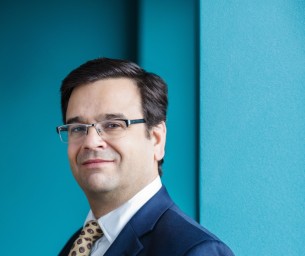Written by Sophie Grene for the Financtial Times
Jeremy Coller, the private equity specialist, has been a vegetarian since he was 12. He would be a vegan if he did not have a secret vice in the form of a cheese addiction. Silk and leather are not to be found in his wardrobe.
Until recently, this principled personal stand was entirely separate from his professional life as a pioneer of the private equity secondary market, an industry that enables investors to acquire positions in private equity funds.
Now the 57-year-old, who founded Coller Capital, the private equity firm, in 1990, is trying to bring the two together with a foray into the world of sustainable investment and shareholder engagement.
Mr Coller has his own philanthropic endowment, the Jeremy Coller Foundation, which is running an initiative called Fairr — farm animal investment risk and return — intended to raise awareness about the role and risks of factory farming for investors.
While campaigners on healthy eating, animal welfare and environmental issues have all flagged numerous issues with factory farming in recent decades, investors, even among the growing sustainability community, have paid the issue scant attention.
The Fairr initiative is intended to change that. Mr Coller argues that there are substantial financial issues for investors to consider, aside from the ethical questions.
The first issue the initiative is trying to address is the use of antibiotics in factory farming. Farmers routinely feed their animals antibiotics to prevent infections from spreading like wildfire across a farm. Antibiotics also have the convenient side effect of helping livestock grow more quickly. Private equity executive fights antibiotic risks in farming.
Unfortunately, this is leading to the development of bugs that are unaffected by antibiotics, some of which will inevitably spread to humans with potentially appalling effects, according to the World Health Organisation.
This is a public health concern that we all need to worry about, but Mr Coller argues that it is also relevant for investors. “Avian flu in the US last year cost $3.3bn.
That is 6 per cent of the $50bn US poultry industry,” he says. Apart from epidemics, there are also regulatory risks, such as California’s decision last year to ban the routine use of antibiotics for livestock, as well as legal and reputational concerns.
Appealing to investors’ sense of self-preservation instead of their humanity is an idea that only came to Mr Coller fairly late in the game. “I used to completely ignore ESG [environmental, social and governance investing].
I paid lip service to it, that was all,” he says. But a conversation with the executive director of Fairr, Alan Briefel, and Rosie Wardle, who runs the Jeremy Coller Foundation, led him to see ESG as the way to get investors interested in his animal welfare agenda.
“Now our ambition is to get [animal welfare] as an agenda item on the PRI,” Mr Coller says in reference to the UN-backed network of fund managers pursuing sustainable investment strategies.
The PRI is in the process of reviewing its objectives, which has created an opening for the addition of the Fairr campaign. Fairr’s approach to antibiotic use is to write directly to the senior executives and boards of companies that do not follow best practice.
Companies targeted by the campaign include McDonald’s, the fast-food chain, Domino’s Pizza and JD Wetherspoon, the pub chain. If it were just one campaigning group writing the letter, the recipient might drop it in the bin. But in this case, Fairr represents managers and owners of $700bn assets under management, and counting.
In a move reminiscent of other ESG campaigners, Fairr has assembled an alliance of asset owners and managers prepared to put their names on this letter. Among the big signatories are Aviva Investors, the £290bn asset manager, and Natixis Asset Management, the €331bn French fund house.
These are not vegetarian activist funds, but serious investment managers, albeit ones that have made a clear commitment to ESG. Coller Capital itself set up an ESG committee in 2011. For the first couple of years it consisted of “five senior people in the organisation, but they didn’t report to anyone”, according to Mr Coller. Then in 2013, he found himself making a presentation to his own ESG committee on behalf of Fairr, and realised there was something useful there. “They now report to me as chief investment officer.”
To show it is a sincere conversion, Mr Coller has just hired a head of ESG, Adam Black. He expects to add value to Mr Coller’s investments in a relatively short space of time, by pointing out inefficiencies, risks and brand-management problems in investee companies. This implies that many private equity companies have been leaving money on the table by assuming that ESG has nothing to offer.
At a time when private equity is struggling to convince investors it offers value for money, taking ESG seriously may be one way to secure a competitive advantage.
Mr Coller says: “These large food companies are key ingredients in the portfolios of most of our pensions and savings. Thus it is a case of proper risk management to ask them to work out how they will meet this challenge.
“The world is changing, regulation on antibiotic use is set to tighten, and consumer preferences are shifting away from factory-farmed food. As stewards of these food companies and responsible investors, we want to protect both human health and shareholder value.”


















